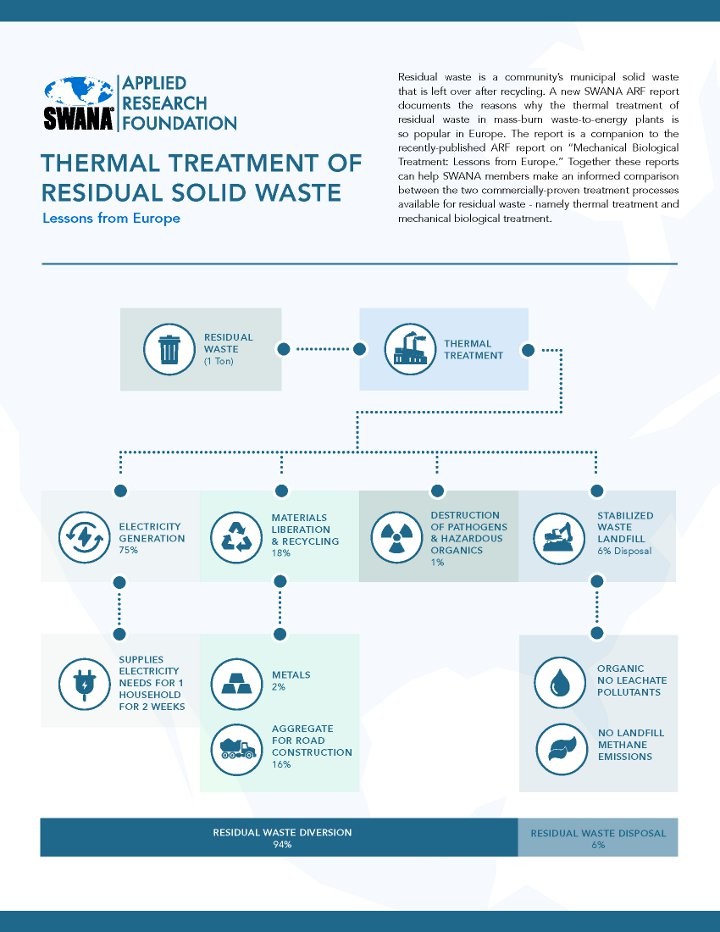New SWANA Report Documents Waste-To-Energy Use in Europe, Identifies Opportunities in North America
Findings Released by Solid Waste association's Applied Research Foundation

A new report issued by the Solid Waste Association of North America's (SWANA) Applied Research Foundation (ARF) documents the reasons for the extensive use of thermal treatment of municipal solid waste (MSW) in waste-to-energy (WTE) facilities in Europe and discusses how they might support the expanded use of thermal treatment in North America as an effective and proven process for treating residual waste.
The report, "Thermal Treatment of Residual Waste: Lessons from Europe," investigates why developed countries in Western Europe have embraced thermal treatment and are processing 97 million tons of residual waste in over 500 WTE facilities located in 22 countries.
"European thermal treatment facilities were developed to meet landfill treatment and stabilization requirements, as well as recover energy for electricity and heat generation and additional materials for recycling," said Jeremy O'Brien, P.E., SWANA's Director of Applied Research. "A key motivation in Europe is to treat residual MSW that is not targeted for recycling in order to destroy any hazardous organic substances in the waste and ensure that it is biologically and chemically stable before it is disposed in landfills."
While acknowledging the differences between North American and European markets, the report presents a range of key findings that can help solid waste managers in North America when determining whether thermal treatment is a viable option for their community.
"This report provides a significant analysis of the differences underlying the use of WTE in the United States and Canada compared to Europe. In Europe, WTE facilities often are needed to comply with EU and national requirements to treat and stabilize waste before landfill disposal," said David Biderman, SWANA's Executive Director and CEO. "In the U.S., many WTE facilities were built in response to a perceived landfill shortage more than twenty years ago, and there was a focus on volume reduction. With landfill capacity getting tighter in certain parts of the U.S., particularly New England, there may be additional new opportunities for WTE."
The report is being published as a companion to the recently-published ARF report on "Mechanical Biological Treatment: Lessons from Europe." The full report, "Thermal Treatment of Residual Waste - Lessons from Europe," is currently only available to SWANA ARF subscribers. SWANA members receive free access to ARF industry reports one year after publication. SWANA members receive free access to ARF industry reports one year after publication.
To learn more,click here for the Executive Summary of the new report.



